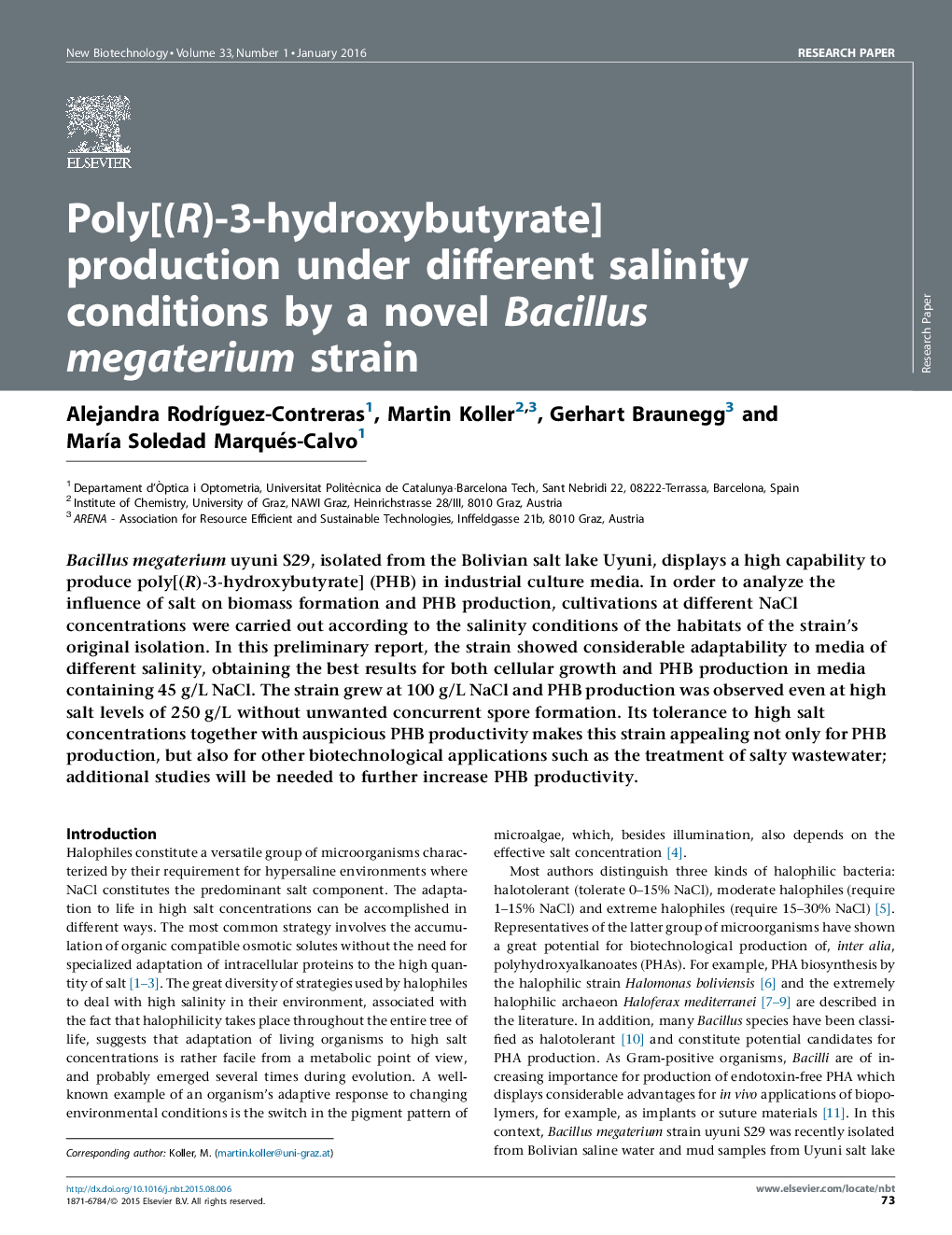| کد مقاله | کد نشریه | سال انتشار | مقاله انگلیسی | نسخه تمام متن |
|---|---|---|---|---|
| 33038 | 44954 | 2016 | 5 صفحه PDF | دانلود رایگان |
• Bacillus megaterium uyuni S29 turned out as a halophile PHA-producer.
• The strain can adapt to a variety of different salinities.
• ‘Salt-in’ and ‘salt-out’ strategies are assumed to be applied by the strain to adapt to different salinities.
• The optimum salinity both for growth and PHA production is about 45 g/L NaCl.
Bacillus megaterium uyuni S29, isolated from the Bolivian salt lake Uyuni, displays a high capability to produce poly[(R)-3-hydroxybutyrate] (PHB) in industrial culture media. In order to analyze the influence of salt on biomass formation and PHB production, cultivations at different NaCl concentrations were carried out according to the salinity conditions of the habitats of the strain's original isolation. In this preliminary report, the strain showed considerable adaptability to media of different salinity, obtaining the best results for both cellular growth and PHB production in media containing 45 g/L NaCl. The strain grew at 100 g/L NaCl and PHB production was observed even at high salt levels of 250 g/L without unwanted concurrent spore formation. Its tolerance to high salt concentrations together with auspicious PHB productivity makes this strain appealing not only for PHB production, but also for other biotechnological applications such as the treatment of salty wastewater; additional studies will be needed to further increase PHB productivity.
Journal: New Biotechnology - Volume 33, Issue 1, 25 January 2016, Pages 73–77
